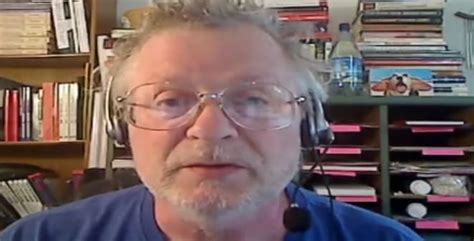A Quote by John Kremer
Don't sell yourself short. No one will value you. Set a fair price for you, your book, your services, whatever it is that you have to offer. Most of us set way too low a price. Put it a little higher than you would normally be inclined to do. The worst that can happen is someone will come along and steal it.
Related Quotes
I buy stocks when they are battered. I am strict with my discipline. I always buy stocks with low price-earnings ratios, low price-to-book value ratios and higher-than-average yield. Academic studies have shown that a strategy of buying out-of-favor stocks with low P/E, price-to-book and price-to-cash flow ratios outperforms the market pretty consistently over long periods of time.
Economists tell us that the 'price' of an object and its 'value' have very little or nothing to do with one another. 'Value' is entirely subjective economic value, anyway while 'price' reflects whatever a buyer is willing to give up to get the object in question, and whatever the seller is willing to accept to give it up. Both are governed by the Law of Marginal Utility, which is actually a law of psychology, rather than economics. For government to attempt to dictate a 'fair price' betrays complete misunderstanding of the entire process.
Edge also implies what Ben Graham....called a margin of safety. You have a margin of safety when you buy an asset at a price that is substantially less than its value. As Graham noted, the margin of safety 'is available for absorbing the effect of miscalculations or worse than average luck.' ...Graham expands, "The margin of safety is always dependent on the price paid. It will be large at one price, small at some higher price, nonexistent at some still higher price."
I think everyone should sell whatever product they want to sell for whatever price they want to sell it for, but ultimately the market will dictate what it is and people will have to charge less money for everything. Record companies have been overcharging people for way too long and now this is the trouble that they're in.
The essence of a successful business is really quite simple. It is your ability to offer a product or service that people will pay for at a price sufficiently above your costs, ideally three or four or five times your cost, thereby giving you a profit that enables you to buy and to offer more products and services.
Value in relation to price, not price alone, must determine your investment decisions. If you look to Mr Market as a creator of investment opportunities (where price departs from underlying value), you have the makings of a value investor. If you insist on looking to Mr Market for investment guidance however, you are probably best advised to hire someone else to manage your money.
A price drop in a good stock is only a tragedy if you sell at that price and never buy more. To me, a price drop is an opportunity to load up on bargains from among your worst performers and your laggards that show promise. If you can't convince yourself "When I'm down 25 percent, I'm a buyer" and banish forever the fatal thought "When I'm down 25 percent, I'm a seller," then you'll never make a decent profit in stocks.
If you want to be a slave in life, then continue going around asking others to do for you. They will oblige, but you will find the price is your choices, your freedom, your life itself. They will do for you, and as a result you will be in bondage to them forever, having given your identity away for a paltry price. Then, and only then, you will be a nobody, a slave, because you yourself and nobody else made it so.

































